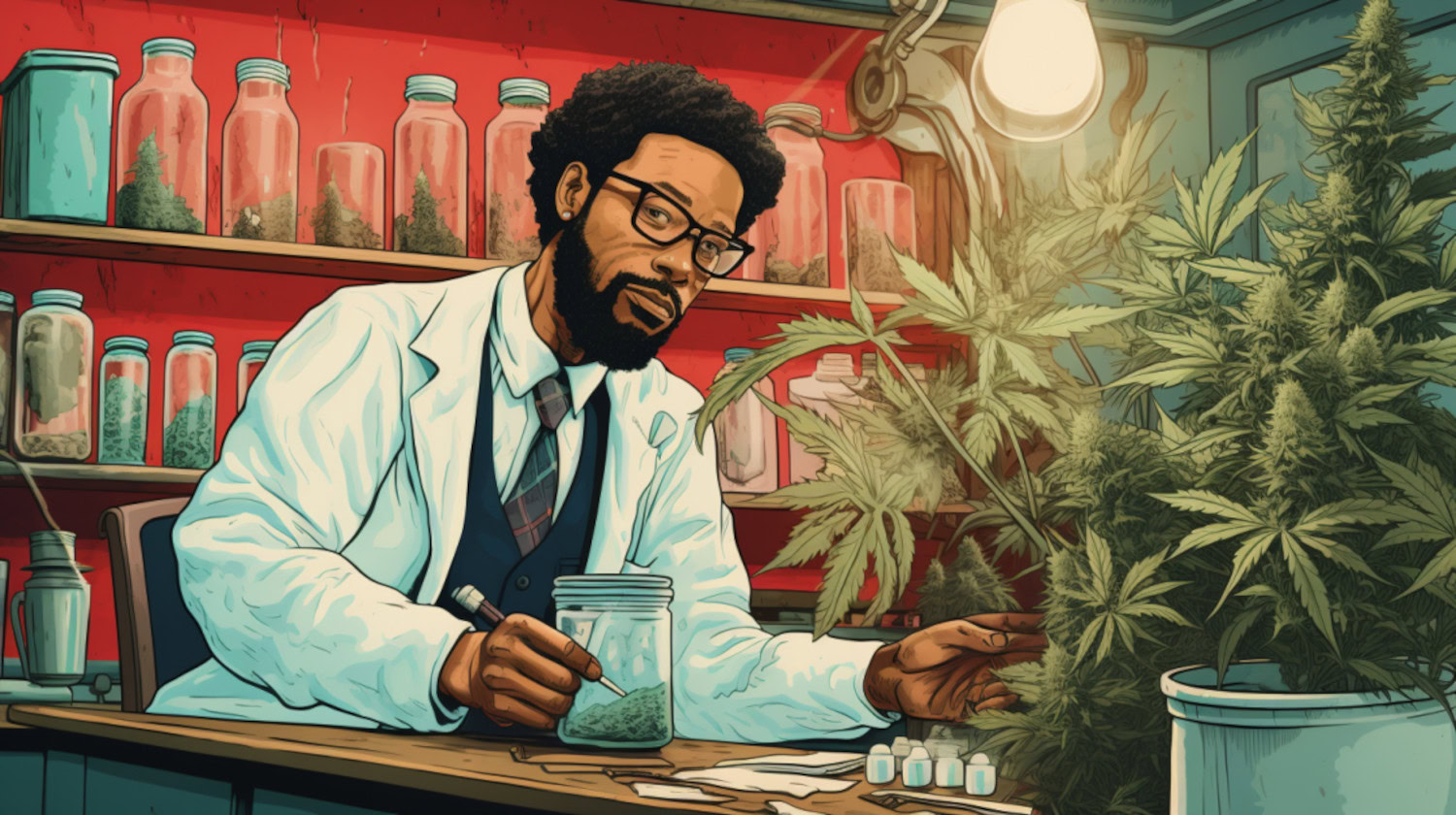Key Takeaways
- CBD-rich strains like Twilight and Lucy may offer effective relief for TBI symptoms.
- Strains with a balanced CBD ratio may help manage both the physical and mental discomfort of TBI.
- Terpene profiles can enhance a strain’s ability to reduce inflammation, relieve pain, and improve overall well-being during TBI recovery.
With so many cannabis strains available today, it’s easy for new patients to feel overwhelmed. Choosing the right strain can feel essential, especially when dealing with serious conditions like traumatic brain injury (TBI). The best strains for traumatic brain injury may help address specific symptoms. More patients are exploring marijuana and concussions, and as patients explore the industry, understanding which strains may offer the most benefit is increasingly important.
Can Weed Help with Traumatic Brain Injury?
Research suggests that cannabis might help with traumatic brain injuries (TBI). Cannabinoids like CBD show promise, especially for their anti-inflammatory and pain-reducing properties. Studies show CBD may reduce inflammation and support brain health after an injury.1 On the other hand, THC has some neuroprotective effects, but they are less consistent compared to CBD.2
For those wondering, “Can weed help with concussions?” the answer depends on individual responses and the cannabinoid profile of the strain. Some people find significant relief, while others may not experience the same benefits.
The endocannabinoid system plays a massive role in how medical cannabis affects us. Understanding this system can help patients choose products strategically for their symptoms. While more research is needed, many patients find success with cannabis for TBI. Some research has even demonstrated a potential neuroprotective effect of prior cannabis use against the damaging symptoms of TBI in the brain.3 Especially for CBD-rich strains, medical cannabis may help manage TBI symptoms. For some, that can drastically improve quality of life, too.4
Which Terpenes Help With Traumatic Brain Injury?

It's important to note that research on terpenes specifically for TBIs is still emerging. However, several terpenes show promise based on their effects on related conditions. These include inflammation and pain, which are common issues in TBI cases.
- β-Caryophyllene (BCP) is one of the most widely studied terpenes in neurological conditions. It may have anti-inflammatory and pain-relieving effects, potentially beneficial for managing TBI symptoms.2
- Myrcene is another terpene that may be useful for TBI patients. It’s known for its sedative and muscle-relaxing effects. These may help manage discomfort and might promote relaxation.2
- Limonene is often recognized for its pain management potential. It may inhibit pain signals in the brain, which may be helpful for TBI patients experiencing chronic pain.2
- α-Pinene stands out for its neuroprotective effects. Its antioxidant properties may reduce oxidative damage shortly after a brain injury and potentially even aid recovery.2
- Nerolidol is a lesser-known terpene with promising neuroprotective and anti-inflammatory benefits. It might offer effects similar to alpha-pinene.2 These findings suggest it may help manage TBI symptoms like inflammation.
As more research becomes available, we’ll better understand how these terpenes might be involved in TBI treatment.
How to Choose the Best Strains for Traumatic Brain Injury
Patients should consider several factors to select the most effective strain for TBI. Every patient is different, even with TBI cases, so it comes down to a personal level to decide.
First, it’s best to check the certificate of analysis (COA). This document verifies that a third-party lab has tested the product for contaminants and potency. A COA will also reveal the strain's cannabinoid and terpene profiles, helping patients determine if it matches their needs. Strains with a high CBD content are often considered to have mild effects and could be a better starting point for those new to cannabis.
Patients should also look for strains rich in terpenes known for their effect on TBI-associated symptoms. Several terpenes are known for their anti-inflammatory, pain-reducing, and calming effects. Beta-caryophyllene, myrcene, and alpha-pinene are all diverse but may help individually.
Likewise, patients should focus on the overall entourage effect that may happen. That's where cannabinoids and terpenes work together to enhance cannabis's therapeutic benefits potentially. Strains with a diverse terpene profile or an array of cannabinoids are likelier to provide a potent entourage effect.
As for strain families, patients have reported positive experiences with various types. However, there’s no one-size-fits-all cultivar, so personal experimentation may be necessary. Some patients may prefer strains for their relaxing effects, while others might lean towards balance for a mix of relief and mental clarity.
Lastly, listening to your body every step of the way is essential. Consult with a healthcare provider, especially if you’re new to cannabis or trying a new strain. Take it low and slow to help you avoid strains or terpenes that might not work well with your specific symptoms.
The 5 Best Strains for Traumatic Brain Injury

Choosing the right strain is essential for managing traumatic brain injury (TBI) symptoms with medical cannabis. Based on patient reviews and their unique combination of cannabinoids and terpenes, below are five strains that stand out.
Remedy
Remedy is a high-CBD strain with minimal THC, making it ideal for those seeking relief without intoxication. With a CBD ratio of about 13:1, Remedy is known for its calming and therapeutic effects. Rich in myrcene, pinene, and caryophyllene, it’s particularly effective against inflammation, pain, and sleep issues. Patients report feeling relaxed and stress-free without the grogginess from high-THC strains.
ACDC
ACDC is another CBD-dominant strain, similar to Remedy, with a 13:1 CBD ratio. This strain is favored for its ability to manage pain, spasticity, and anxiety without the intoxicating effects of THC. Combining myrcene, pinene, and caryophyllene helps create a well-rounded effect that supports brain health. Some patients find that it promotes mental clarity during recovery.
Twilight
Twilight is a strain offering a mix of CBD, THC, and CBC. It’s popular among TBI patients for its ability to relieve pain and promote relaxation. Twilight may be energizing for some, making it versatile for day or evening use. Its caryophyllene, myrcene, and limonene may contribute to its calming effects. The strain has a rap for helping with physical discomfort and sleep disturbances.
Maui Bubble Gift
Maui Bubble Gift has a nearly 1:1 CBD ratio and a touch of CBG. This balanced cannabinoid profile makes it a potential option for managing pain and inflammation. At the same time, some may use it to maintain their mental clarity. Limonene, caryophyllene, and pinene make for a potent combination. Patients report that it enhances mood and focus, providing effective symptom relief. It does so without being overly sedative, too, so some prefer to use it in the daytime or when they need to stay focused.
Lucy
Lucy packs a mix of CBD, THC, and CBG. Known for its mood-boosting and anti-inflammatory properties, it's a versatile option for TBI patients. The rich mix of caryophyllene, limonene, and linalool may provide relaxation and mental clarity. Some find it effective for managing various TBI symptoms, including cognitive fog and inflammation.
References
- Hergert DC, Robertson-Benta C, Sicard V, et al. Use of Medical Cannabis to Treat Traumatic Brain Injury. J Neurotrauma. 2021;38(14):1904-1917. doi:10.1089/neu.2020.7148
↩︎ - Lins BR, Anyaegbu CC, Hellewell SC, et al. Cannabinoids in traumatic brain injury and related neuropathologies: preclinical and clinical research on endogenous, plant-derived, and synthetic compounds. J Neuroinflammation. 2023;20(1):77.
↩︎ - Szaflarski J, Szaflarski M. Traumatic Brain Injury Outcomes After Recreational Cannabis Use. Neuropsychiatric Disease and Treatment. 2024;20:809-821. ↩︎
- Aychman MM, Goldman DL, Kaplan JS. Cannabidiol's neuroprotective properties and potential treatment of traumatic brain injuries. Front Neurol. 2023;14:1087011. Published 2023 Feb 2. doi:10.3389/fneur.2023.1087011
↩︎
The information in this article and any included images or charts are for educational purposes only. This information is neither a substitute for, nor does it replace, professional legal advice or medical advice, diagnosis, or treatment. If you have any concerns or questions about laws, regulations, or your health, you should always consult with an attorney, physician or other licensed professional.




